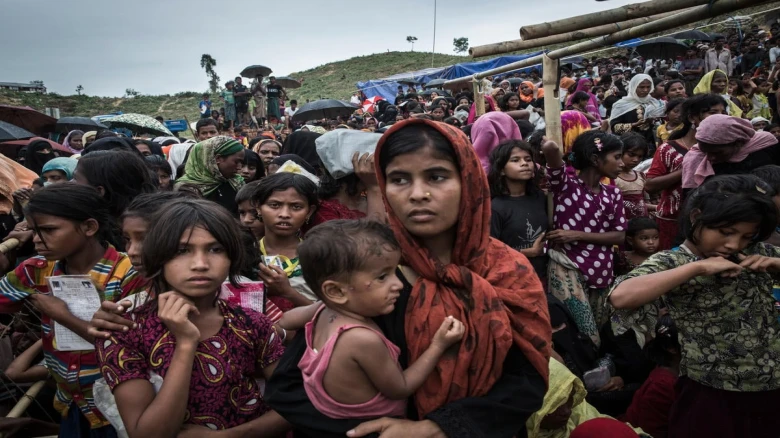Article

The government emphasised that the judiciary should not overstep its boundaries by creating a separate category for granting refugee status to such individuals
Digital Desk: The Indian government has made a firm statement in the Supreme Court regarding the status of illegal Rohingya Muslim migrants in the country. According to the government's affidavit, these migrants do not possess a fundamental right to reside and settle in India.
The government emphasised that the judiciary should not overstep its boundaries by creating a separate category for granting refugee status to such individuals. It clarified that while foreigners have the right to life and liberty under Article 21 of the Constitution, the right to reside and settle in India is exclusively reserved for Indian citizens.
“Continuance of Rohingyas’ illegal migration to India and their stay in India, apart from it being absolutely illegal, is fraught with serious security ramifications,” it said, as quoted by The Economic Times.
India does not recognise the United Nations High Commissioner for Refugees (UNHCR) refugee cards used by some Rohingya Muslims to claim refugee status. The government highlighted concerns about illegal migration, fake Indian identity documents, human trafficking, and security threats posed by these activities.
The affidavit also mentioned the demographic changes in border states due to large-scale illegal migration from neighbouring countries. The government reiterated that illegal migrants would be dealt with according to the Foreigners Act since India is not a signatory to the 1951 Refugee Convention.
Responding to a plea for the release of detained Rohingyas made by petitioner Priyali Sur, the government reaffirmed that people who enter India unlawfully will be dealt with in compliance with the Foreigners Act. It further explained that India would address the Rohingya issue under its domestic framework because it is not a party to the 1951 Refugee Convention and its Protocol about the Status of Refugees.
Leave A Comment